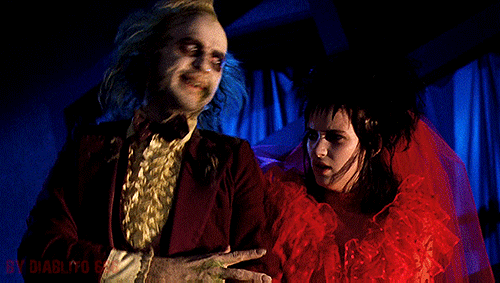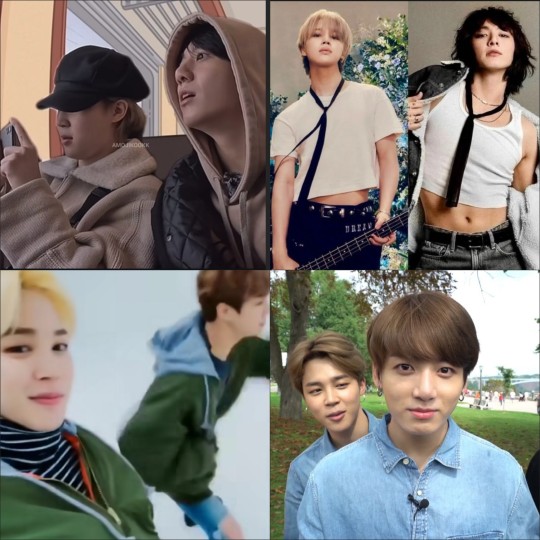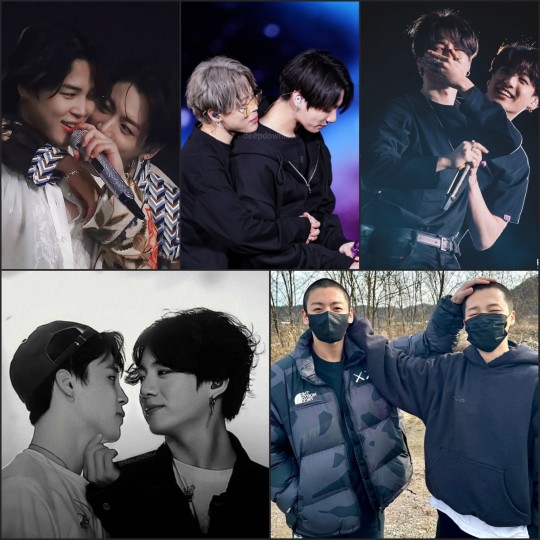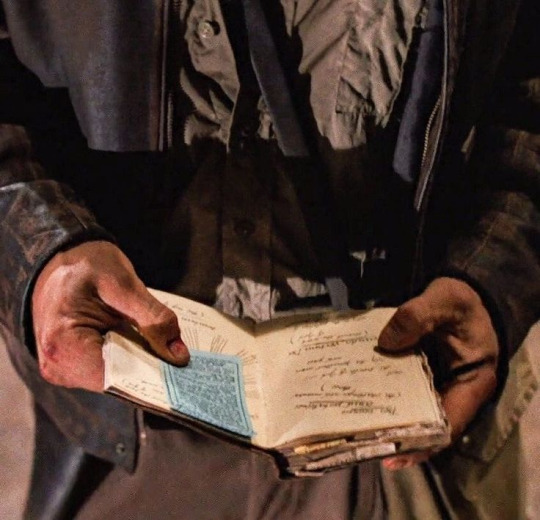#like how much of the current us political climate
Explore tagged Tumblr posts
Text
Genuinely infuriating that American youth begged for gun safety and climate action and the Trump administration is going "Oh your teachers are turning you transgender? Don't worry we got you." Don't talk about protecting the youth if you are not going to listen to the very vocal youth.
#yes elementary schoolers can't speak for themselves#but middle + high schoolers can and do#and believe it or not they do remember elementary school#i went to K-12 public school in California in a very liberal area (graduated last year). NO ONE PROMOTED BEING TRANSGENDER#if this was something that happened it would have happened to me bro😭😭 or someone i know#BUT IT DOESNT#and not even conservative kids in California have ever alleged that that i know of 😭😭#crazy unfounded belief. most teachers don't even know how to respect a trans kids pronouns much less promote transgenderism 💀#no one asked for this. try again and maybe pass some gun safety + climate laws like the youth actually asked for. thanks!#its just really insulting lmfao#tobin talks#us politics#current events
10 notes
·
View notes
Text
if sinners (2025) taught me anything, it's that it IS actually always about race.
you can be oppressed, and still promote and maintain the very same systems of oppression onto other marginalized people. being oppressed in one dimension doesn't allow you to be exempt from oppressing in other dimensions. the "villain" of the movie, remmick, being from the time period of the english colonization of ireland, all the while wanting to take a piece of sammie's own culture from him, use him for it. and this plot point coming after remmick witnesses the significance of sammie's playing within his culture, for his ancestors and how it would shape Black culture in the future.
even in today's society, ive noticed that people treat Black people like a commodity. our worth is only as much as other people decide it to be, and that's usually dependent on how much the oppressor can take from us. for example, the controversy of"internet slang" and how it is blatantly just AAVE with a bad disguise on
do you listen to Black musicians? do you watch Black movies? do you engage with Black creators? do you defend the racist tendencies you notice in your friends, in your family, or do you stay silent? do you listen when Black people tell you you've said or done something racist? do you actually care about not being racist, or do you just not want to look like you're racist?
i just think people have a very specific take on what racism is, and that if they're not committing KKK-levels of violence on people, then they're not racist. or if you've experienced oppression in one form, you cannot possibly be engaging with oppression in another form. but the ways in which we interact with other people and the world will always be through the lens of race, because that is simply what it means for oppression to be systemic, especially in the US and our current political climate
anyway 10/10 movie. highly recommend
#also im black if that wasnt obvious lmao#sinners#sinners 2025#hailee steinfeld#michael b jordan#ryan coogler
11K notes
·
View notes
Text
I must explain to my American followers. Follow me on this thought experiment.
Read these questions. You do not need to answer, just read them.
Who is the current head of government of Ethiopia?
Are they a king, queen, president, prime minister, dictator, or tsar?
Are they generally liked or generally disliked by their people? Why?
Are they seen as conventionally attractive?
What was their most recent scandal?
What’s a weird outfit they’ve worn while in office?
What are their interior design preferences?
Has anyone tried to assassinate them? How many times?
What’s their favourite food?
Does Ethiopia have a national anthem?
What are the top 3 most iconic symbols of Ethiopia?
What’s the most prevalent religion in Ethiopia?
What are 5 Ethiopian TV series?
What languages are spoken in Ethiopia?
What are 5 Ethiopian celebrities?
Can you draw the Ethiopian flag?
What are 5 rights or privileges granted to citizens of Ethiopia?
What structure do Ethiopian school systems follow?
What are 5 Ethiopian foods?
What are 5 Ethiopian exports?
What countries are allied with Ethiopia?
What is one topic in Ethiopia that you are more educated on than in America?
What are 3 Ethiopian stereotypes?
Does Ethiopia have States, Provinces, or neither?
Where is Ethiopia’s government capital?
What currency is used in Ethiopia?
What animal is the Ethiopian symbol? Do they have one?
What is Ethiopia’s ethnic majority?
Who was their first government leader of Ethiopia? What is an interesting fact about them?
Who has Ethiopia gone to war against? Why?
Can you name 3 wars Ethiopia was involved in?
Can you name 3 Ethiopian women famous for their beauty?
What is the current Ethiopian political climate?
What areas of Ethiopia are considered rural or urban?
Can you name 3 major Ethiopian landmarks?
Can you name 3 Ethiopian amusement parks?
Can you name 3 Ethiopian national parks?
Can a civilian openly carry a gun in Ethiopia?
At what age can a person begin drinking Alcohol in Ethiopia?
What is the age of consent in Ethiopia?
Can you name 3 infamous Ethiopian criminals?
Can you name 3 Ethiopian comedians?
What was the most recent major natural disaster to hit Ethiopia?
Is Ethiopian culture as a whole generally considered more conservative or more progressive than your own?
Roughly how much money goes into the Ethiopian military budget? Millions or billions?
What are the staple crops in Ethiopia?
What is something that was invented in Ethiopia?
Who are 3 famous Ethiopian businessmen?
What are 5 wildly popular Ethiopian musicians?
What was one viral fashion trend among Ethiopian youth?
If you could correctly answer around 40 of these, then congratulations! That is what every other English speaker feels like living in proximity to America
That is the extent to which American media leeches into everything
Yes, it is weird
7K notes
·
View notes
Text
Okay you know what, I do have another thing to add about audio fiction and how important it is, especially now. You know, during *gestures broadly around*
The thing about audio fiction is that they can't take it down.
Books can be pulled off the store shelves and publishers can flat-out refuse to give space to new ones that don't fit their side of the current political climate. Video streaming services can and already have gone even further by entirely scrubbing media they don't like from the only places that had rights to distribute them -- if not for piracy, shows like Infinity Train would be gone gone. I expect we will see much more of this type of behavior in coming years.
With audio fiction podcasting, the default is a decentralized, self-published, free to access platform. They can't very well take down a whole hosting service, and any show they go after can just be re-uploaded under a new RSS feed. (If you're a creator, please look into the basic principles of self-hosting, just in case.) Although we probably won't need to take any of those measures, because since there's no money that capitalists can extract from this art form,
They don't even know we exist. Be as queer as you want. Be as progressive and inclusive as you want. Be as anti-capitalist, anti-imperialist, anti-racist, anti-fascist as you want. Tell stories that are important, that people with power wouldn't want you to tell. They won't find us, not here.
Peace and love on every planet. And fight until we get it.
923 notes
·
View notes
Text
THINGS I NOTICED WHILE WATCHING BEETLEJUICE BEETLEJUICE AGAIN:
This is a very Beetlebabes-centric post, so if you don’t like the ship, please feel free to scroll away. <3

Beetlejuice cut Delores’ ring finger off, and while it was originally a fun joke in the first movie, there’s deep implications about that action when we look at it with the context of the second film. Beetlejuice attacked her after she betrayed him. Anyone would want to kill the person that poisoned them, but the fact that he took the time to find her finger and deliberately cut her ring finger off (and ONLY that finger) reflects how much that marriage meant to him. It also symbolizes that he’s effectively dissolving their marriage. He’s cut off the physical representation of their love and taken the ring, which he tries to give to Lydia hundreds of years later. He held onto that ring for centuries in hopes of finding someone he deemed worthy of it.
He calls his dynamic with Lydia a long-distance relationship, which could’ve been a throwaway joke if not for the fact that when he clearly notices how hot Janet is, he never talks to her or gropes her like he did with Barbara prior to meeting Lydia. Keaton said BJ wouldn’t be politically correct, so this isn’t to reflect the current political climate, but rather to reflect BJ’s motivations.
Beetlejuice was jobless at the start of the first movie, and in thirty years he’s built a company for his bio-exorcisms. Coupled with the picture of Lydia on his desk, it’s possible he did this to impress her. After all, she’s famous and rich now. BJ’s gotta step it up, y’know?
Probably overheard the convo between Lydia and Rory and deliberately bugged her at that time, because if he can possess the phone or whatever, he can probably use it to eavesdrop. This can be further supported by how he got rid of the influencers but kept the people that mattered to Lydia present—Delia and Astrid.
We can also assume he overheard the conversation where Lydia said that Rory loves her and that has to be enough because of the panning to a gravestone. BJ has a special fascination with graveyards, even tiny model ones. If he did overhear them, it explains why he used the truth serum on Rory. He’s testing him. He wants to see if this guy actually loves Lydia or if he’s using her, and then he gives Lydia the means to exact revenge on Rory rather than doing anything himself.
Lydia spends half the movie being strong -armed into a marriage with Rory, and in a way, it’s reminiscent of the first movie’s marriage attempt. Rory dangles their “love” in front of her like a carrot, and if she doesn’t want to be alone, she has to accept his manipulation and agree to get married. Yet she immediately offers it to Beetlejuice, only sounding annoyed rather than terrified. And the movie spends a lot of time proving that BJ has sincere motives this time around, whereas Rory doesn’t. It pushes an underlying message that if one of these guys is going to be a better choice, it’ll be BJ.
Despite Lydia having a tendency to back out of their deals, he still helps her first. He prioritizes saving Astrid even before finding his “runaway bride” again.
Casually calls Lydia the love of his life, looks so sincere when he says he’ll make her so happy. Clearly spent those 30 years planning that dream-dance sequence.
He doesn’t seem to care that Lydia’s sending him away. That coupled with the end scene illustrates how confident he is this time around. Lydia is still stuck with him, and even if he didn’t get her this time, he will eventually. But he also knows how spooked she is by marriage after being a snoop, so it’s possible that he’s just taking it slow on purpose.
In conclusion: Beetlejuice genuinely does want to be with Lydia and care about her. His feelings have evolved beyond permanent residence in the mortal world. If anything, if he still wants that, it’s so he can be by her side.
2K notes
·
View notes
Text
i’ve been thinking a lot about that article that interviewed these rich white 19-20 year old kids who voted for trump and how so many of them said they did it because they were tired of being told what they couldn’t say and wanted to be able to make offensive jokes again. the world we live in is so individualistic and devalues empathy to such an insane degree.
so it’s like, do i think every player who went to the white house is a trump supporter who voted for him? no, probably not. but the league is, by a vast majority, full of rich white men who likely grew up in rich white communities in a sport that devalues empathy and places so much weight on tradition. so they don’t care. going to meet the president is part of the experience of winning the stanley cup and they want the full traditional experience and they don’t care about the current political climate or what being photographed smiling and thanking trump for his time is going to look or feel like to the people who are actually effected the most by what he’s done and what he’s threatening to do. they don’t care. they want to do the fun thing they earned for playing hockey good. it’s just depressing.
and like to be clear this isn’t a way of removing agency from these guys. lots of people grew up in environments like them and managed to break free of those ingrained messages and care about other people. most of these guys just don’t want to. they don’t want to think about politics beyond whether they’ll get fired for saying slurs and if they have to wear rainbow jerseys one night a year. is every player who didn’t use pride tape after travis dermott did homophobic? no. they just don’t care enough.
which is i guess sort of the problem with sports fandom, and something we have to sit with whenever these situations happen. these are real people. they’re not characters on a show who have plot lines and character arcs. and people are often disappointing.
i don’t know if i’m going anywhere with this. i guess maybe i’d like to remind us all to be kind to each other. to be empathetic. we’ve all got our different lines in the sand for what makes players persona non gratas to us and trying to use that as a gotcha for fandom beef can only really come back to bite us. what am i gonna say to a matthew tkachuck fan when sidney crosby did the same thing when the pens won in 2017? id like to think the players i support would be different but realistically they probably wouldn’t. florida fans and tkachuk fans are in the spot they’re in because their team won the cup, not because the team and players are uniquely more evil or more trump-supporting than anyone else. i don’t want to gotcha anyone. we’re all out here trying to have fun in our sandboxes in a world where empathy is a weakness and people who really matter to us disappoint and hurt us, sometimes just by not caring at all.
anyway. i try not to get into real life stuff too much on here and this will likely be the last i say on the subject. love you guys & i hope the world is kinder to us all soon
452 notes
·
View notes
Text
you know what else fucks me up about the US election? one of the things that has left me reeling in bewilderment and grief this month?
I'm a scientist, y'all.
That means that I am, like most American research scientists, a federal contractor. (Possibly employee. It's confusing, and it fucks with my taxes being a postdoctoral researcher.) I get paid because someone, in the long run ideally me, makes a really, really detailed pitch to one of several federal grant agencies that the nation would really be missing out if I couldn't follow up on these thoughts and find concrete evidence about whether or not I'm right.
Currently, my personal salary is dependent on a whole department of scientists convincing one of the largest and most powerful granting agencies that they have a program that is really good at training scientists that can think deeply about the priorities of the agency. Those priorities are defined by the guy who runs the agency, and he gets to hire whatever qualified people he wants. That guy? The Presidential Administration picks that one. That's how federal agencies get staffed: the President's administration nominates them.
All of the heads of these agencies are personally nominated by the president and their administration. They are people of enormous power whose job is to administer million-dollar grants to the scientists competing urgently for limited funds. A million dollars often doesn't go farther than a couple of years when it's intended to pay for absolutely everything to do with a particular pitch, including salaries of your trainees, all materials, travel expenses, promoting the work among other researchers, all of it—so most smart American researchers are working fervently on grants all the time.
The next director of the NIH will be a Trump appointee, if he notices and thinks to appoint one. NSF, too; that's the group that funds your ecology and your astroscience and your experimental mathematics and physics and chemistry, the stuff that doesn't have industry funding and industry priorities. USDA. DOE, that's who does a lot of the climate change mitigation and renewable energy source research, they'll just be lucky if they can do anything again because Trump nigh gutted them last time.
Right now, I am working on the very tail end of a grant's funding and I am scurrying to make sure I stay employed. So I'm thinking very closely about federal agency priorities, okay? And I'm thinking that the funding climate for science is going to get a lot fucking leaner. I'm seeing what the American people think of scientists, and about whether my job is worth doing. It's been a lean twelve years in this gig, okay? Every time the federal government gets fucked up, that impacts my job, it means that I have to hustle even harder to get grants in that let me support myself—and, if I have any trainees, their budding careers as well!—to patch over the lean times as much as we can.
So I've been reeling this week thinking about how funding agency priorities are going to change. I work on sex differences in motivation, so let me tell you, the politics reading this one for my next pitch are going to be fun. I'm working on a submission for an explicitly DEI-oriented five year grant with a cycle ending in February, so that's going to be an exercise in hoping that the agency employees at the middle levels (the ones that know how to get things done which can't be replaced immediately with yes men) can buffer the decisions of those big bosses long enough to let that program continue to exist a little while longer.
Ah, Christ, he promised Health & Human Services (which houses the NIH) to RFK, didn't he? We'll see how that pans out.
I keep seeing people calling for more governmental shutdowns on the left now, and it makes me want to scream. The government being gridlocked means the funding that researchers like me need doesn't come, okay? When the DOE can't say fucking "climate change," when the USDA hemorrhages its workers when the agency is dragged halfway across the country, when I watch a major Texan House rep stake his career on trying to destroy the NSF, I think: this is what you people think of us. I think: how little scientists are valued as public workers. Why am I working this hard again?
This is why I described voting as harm reduction. Even if two candidates are "the same" on one thing you care about, they probably aren't the same level of bad on everything. Your task is to figure out the best person to do the job. It's not about a fucking tribalist horse race. A vote is your opinion on a job interview, you fucks. We have to work with this person.
Anyway, I'm probably going to go back to shaking quietly in despair for a little longer and then pick myself up and hit the grind again. If I'm fast, I might still get the grant in this miserable climate if I run, and I might get to actually keep on what I'm trying to do, which is bring research on sex differences, neurodivergence and energy balance as informed by non-binary gender perspectives and disability theory to neuroscience.
Fuck.
#us politics#science#biology#career#probably my last word on the subject for some time#but fuck yall when the government goes down i don't get paid and i have to go do something different#which generally is beholden to the interests of some rich private fucker#I'm just so fucking tired of feeling like i can relax and getting slammed in the face
577 notes
·
View notes
Text
As a DMC fan who’s currently watching the new anime all I have to say without posting any spoilers is that it’s still worth a watch. It may not be canon to the story of the games and really just takes the characters and some of the lore and sticks them in an alternate universe-ish plot but I think it’s still visually appealing and is trying to be faithful to the lore while still giving us a different story to follow along with. I haven’t finished it yet (I’m only on episode 3 as of rn 😭) but I still think if you’re a Devil May Cry fan you should at least give it a little looksie!
My ONE gripe however is they tried so hard to make Lady so edgy it’s actually backfiring and making me not like her as much (which is sad cuz she’s literally my 2nd favorite character in the game franchise 😭) so I hope she gets a little more tolerable later on but yeah other than that they did SO GOOD with writing the villains in this like the White Rabbit is so cool and just so FINE 🫣
Update: I’m on episode 5 now! I still like it as an AU story (and YES I’ve played the games in the past and watched the old anime back in the day and just recently rebought all of the games again, even the reboot, while they’re all on sale and I still like the show!) I know a lot of people are really bitching about its lore accuracy and I really do get it, yeah it sucks to have a favorite series get adapted the wrong way, and it sucks that they’re really seeming to wanna push this political plot point so hard even though it has nothing to do with dmc itself (I’m talking about the treatment of demons here in comparison to our current irl political climate btw just trying to avoid spoilers for folks who haven’t seen it yet) but overall the show is still pretty entertaining, personally I like it for the most part and still think it’s definitely worth a watch!
That being said people are allowed to disagree with me and dislike things thats fine, everyone is entitled to share how they feel about the show but calling people shitty names just for liking something you don’t doesn’t make you any better for being a “real” DMC fan, it just makes you look like an entitled jackass. You can critique things without being a dick about it to others!
#dmc dante#dante sparda#dmc#devil may cry#dmc netflix#dmc anime#devil may cry 2025#dmc dante x reader#dante x reader#Dante Sparda x reader#Devil May Cry x reader#dmc vergil#dmc vergil x reader#yodito speaks#dmc white rabbit#let people enjoy things#devil may cry netflix
196 notes
·
View notes
Text
How to speak without words
a simple guide, by Jikook
This post is all about context, so for context 31 March is Trans Day of Visibility.
Its a day be your authetic and true self and to show the world that trans people exist.
I'm also going to use it as an opportunity to talk about something that comes up over and over, especially with Jimin & JK.
How do we share our story if we can't speak directly?
In the spaces around Jimin & Junkgook, there's a lot of discussion about the messages they are or aren't sending.
For some people these messages aren't significant enough to validate or even to make them wonder. They don't see the broader context or the cumulative effect of the many small moments. Its easy to dismiss it all as isolated incidents.
But for those of us who are seeing the whole picture, nothing is lost or ignored or dismissed.
We understand how these small moments fit together to create a complex story because we see the wider context. They are individual threads in the tapestry of their lives.
When JK goes live on Weverse on White Day wearing a white shirt and not much else and has a drink with ARMY, and we know Jimin is not around, we get what's happening. When Jimin posts a photo of the two of them wearing white on White Day, he doesnt need to say anything else.

When JK sends a thirst trap birthday message for Jimin and ends it with a clunky 'happy birthday bro', we know why.

When he uses the sign language for love on a stage in front of the whole world and directs it at Jimin, we see what hes doing.

When Jungkook presents himself as the vampiric stereotype - lusting for the forbidden - in his photo folio and Jimin parallels this with his own mythic themes and darkly sensual imagery in the same project, we can't misunderstand the symbolism.

When Jimin says "hurry up and be me soon", when he presents feminine for one concept and masculine for the next, when he stands on the Miss Dior red carpet in a cape and full face of make-up but with his bloodied knuckles on full display, we can't pretend we don't see it.

When Jimin & Jungkook wear matching outfits, even even when they're not together...

When they publicly conform to couple stereotypes - off stage and outside of BTS...

We know. We see it all as a single woven story and we know.
And like any truly committed couple, they're there for each other in good times and bad. They celebrate their successes, comfort each other, and stick together when times get tough.

And no, they've never verbally confirmed or denied. The context of their lives makes any such declaration incredibly difficult, if not impossible. Regardless, they owe no explanation. But being so visible would be confirmation enough for almost any other couple to be acknowledged.
They tell us over and over who they are.
Showing so undeniably that they are always there for each other is more than enough, honestly. If you can accept all the things you cannot see, how can you look at these two and not see love?
💜💛
That's essentially what the Trans Day of Visibility is about.
Showing that you exist.
Being seen and believed.
You don't needs to make a speech or an announcement. You can if you want to of course. You can go to a rally if you want to be with the trans community, and in the current political climate that might be safer if you want to be seen.
Maybe you just want to drop a hint ... iykyk
But you don't have to be seen at all if you choose not to...

Shout out to all the trans, gender diverse, gender questioning, and gender non-conforming humans in the world and all our allies and supporters too.
On this year's Trans Day of Visibility, I understand more than ever why people might prefer to remain invisible. It's dangerous out there.
Nevertheless, celebrate yourself today and every day. Being authentic and living your life as your genuine self in a way that makes you happy is your right.
If you aren't there yet, take your time, be brave where you can but be safe, and know that you are amazing.
Trans right are human rights.
And in case it's needed, here's a message for the haters: You will never win. We've always been here and we will always be here. Just like every other human, we belong here too 🏳️⚧️
#seeing is believing#park jimin#jeon jungguk#jikook#kookmin#국민#true love#jungkook#jimin#trans day of visibility#transgender#how much hate will i get for posting about trans rights?
191 notes
·
View notes
Text
Why I'm Enthusiastic About Kamala Harris



I've seen so much negative talk about Trump and we all agree with that, but I want to highlight what I like most about Kamala Harris and why I'm actively enthusiastic and excited about voting for her:
She is pro-abortion rights and pro- comprehensive sex ed
She would appoint good Supreme Court Justices.
She respects people with a diverse range of political views and would include some voices from both progressive and conservative perspectives in her administration.
She is unambiguously pro-LGBTQ rights, including not just on gay rights but also trans rights.
She would represent continuity with the Biden administration, an administration that I think has done a good job on most issues.
On the issue of Palestine/Israel/Gaza (where I am most critical of Biden), I think Harris is a significant improvement over Biden, and also offers the better path of the only two viable candidates, towards ending the genocide. She has spoken out against the civilian deaths and she has snubbed Netanyahu which is a huge plus in my book.
She has shown a willingness to change her views, such as how she moved from being opposed to decriminalizing sex work in 2008, to being supportive of it in 2019, and being initially skeptical of marijuana legalization in 2010, but coming to support it in 2015. I like a candidate who can change their views, but more importantly, she is changing in a direction I like.
She would be good on the economy; she opposes tariffs, and would continue the Biden administration policies which have led to economic prosperity.
She has a solid and fairly diverse track record of experience, working as attorney general for the largest state, then senator for that state, then VP.
She has worked to combat over-incarceration and cruel treatment of people in prison, doing things like reducing mandatory minimum sentences and working to reduce recidivism, opposing solitary confinement, ending private prisons, and ending cash bail. She has also pledged to use the president's clemency powers to release a lot of people who have been imprisoned unjustly or given unfairly harsh sentences.
She has a concrete plan to enact immigration reform that would adequately fund the processing of asylum applications and fix the backlog of immigrants at the border. And the plan has broad bipartisan support.
On top of this she also has already done some things to address the root causes of migration in Latin America, particularly people fleeing Guatemala, Honduras, and El Salvador
She is pro-net-neutrality.
She supports universal healthcare, but also has concrete recommendations for how to improve the current status quo.
She is pro-science, including on issues like climate change, COVID, vaccinations, and health and nutrition. Her mom was a scientist!
She is pro-Ukraine, wanting to keep Russia out of Ukraine and ensure Ukraine wins their war of defense and maintains their independence.
She is across-the-board better on women's issues, not just reproductive rights but also sexual violence and domestic violence, workplace equality and the pay gap, and women's issues in Latin America (which is related to the immigration pressure I mentioned above.)
She generally takes stances on foreign policy I agree with, being skeptical of leaders (Putin, Orban, Netanyahu) I want us to be skeptical of, and working with and looking up to the ones I want us to work with and look up to (Olaf Scholz, Emmanuel Macron). She already has a working relationship with many of these leaders too, and has a reputation of being both personable and tough, just what I'd want.
She's smart, well-educated, and surrounded with smart, well-educated, and wise people. Her campaign is stable and well-run, and I trust her to put together a team of competent advisors and run this country competently, probably even more so than Biden has done, and Biden has done a pretty decent job, exceeding my expectations even.
Harris also has an impressive list of endorsements. I can't possibly be comprehensive here, but it includes people as diverse as the most progressive Democrat Lawmakers (Bernie Sanders and AOC), some of the most conservative former GOP legislators (Jeff Flake, Liz Cheney), and over 100 former GOP staffers including a disturbing number of insiders from the Trump administration. This is telling! You don't see this sort of whistleblowing and defection from within the Biden administration.
The fact that Harris has racked up endorsements from people spanning the whole political spectrum from solid-right to solid-left and everything in between, impresses me. This is the sign of someone who is going to be good at getting people to work together, someone who will listen to a wide range of viewpoints and develop better policy and take better courses of action as a result. It's what I always want in a president.
In some elections I have been frustrated that I'm voting for a "lesser of two evils" but this time around I actually feel actively enthusiastic about Harris. I am excited to vote tomorrow and excited to finally be done with this election, and I am cautiously optimistic that it is going to turn out really well.
I encourage everyone to vote and make sure to make sure everyone close to you is also voting!
272 notes
·
View notes
Text
I couldn't put on a finger on why the whole tiktok migration to xhs left a sour taste in me until I got annoyed at recent subtle sinophobic comments towards Love and Deepspace left in the tags. (It's a Chinese game that has a global/English server)
Which had me thinking and seeking out if other people felt the same way. The Americans found a new platform, the Chinese on the platform are welcoming and attempts to speak to the Americans in English. Cool, what is left? The third group of people out here that aren't Americans or Chinese in China, it's us Chinese diaspora that live outside of China (in particular the west). We learnt English, forced to erase everything Chinese about ourselves to fit in here fit in there but never fully get accepted into any community. Online spaces are no better, we get all sorts of hate even though we are all communicating in English. One comment that I read on tumblr here a while back that really struck me was op posted something regrading Chinese culture and some white person dismissed op for having a Chinese url so they must not speak English to speak on a Chinese topic.
Americans barging themselves into other people's spaces seemingly with no effort is the most white privilege behaviour ever. Some of them don't bother learning the language, the culture, or social etiquettes. To call it 'refugees' in this current climate is lowkey insensitive even as a joke. Some are just outright racist saying they are there to colonise the app. The offhanded uninformed political jokes are also on thin ice. If this was reversed and a massive group of Chinese people suddenly joins instagram/twitter/tumblr, starts posting in Chinese, the comment sections will not be as 'haha funny' and 'wholesome' as the ones on xhs.
White people posting selfies on the app is harvesting thousands of likes and compliments is the prime example of white privilege, they don't have to work hard to get far, boosting their egos further more. How am I supposed to feel even when I share something on here of my culture either get no recognition or sinophobic comments?
There's a sense of helplessness when I see my people pandering to the white, similar to when Chinese diaspora/Chinese in China on the discussion of cultural appropriation. The experiences the two groups have are vastly different. I don't blame them for this. China, for the most part, is still a very closed society, a handful of them probably never left the country, interacted with a white person or had any prejudice against them for being Chinese. To them, it's just an amusing conversation or two without much thought. At the end of the day when the Americans leave the app, it'll be another fever dream. But for us, we still have to go to work with these privileged white people, come home from work to what I thought was a Chinese safe space to find that insufferable co-worker is on xhs going 'hello China [google translate some nonsense]'.
That said, I suppose for me who is able to post this on tumblr is a somewhat privilege move. For the people in China, it is an avenue to interact with Americans on a large scale without having to use a vpn. The welcoming atmosphere gives me peace knowing that to be respectful is still in our core. For the Americans, whether they are on the app out of spite without thinking of the consequences or to learn about China with an open mind, only time will tell if they will remain on xhs after the fad dies out.
175 notes
·
View notes
Text
Uptown Girl



Chapter 1
Pairing: Remus Lupin x Reader Summary: You, an out of touch rich pureblood, recently moved to England for yet another engagement prospect. Unfortunately, things don't go to plan as you somehow find yourself constantly running into a werewolf, who has developed a valid reason to dislike you. Warnings: This is going to be a long fic and the reader will be a bit of a bitch at first. The story will definitely contain violence, excessive use of alcohol, smut and mentions of death. This chapter doesn't have any graphic content though. On side note, this is set in 1983 and sadly, Lily (my wife... 😔) and James are dead. So Sirius is in Azkaban and Peter is "dead". Word Count: 2313 Credits: @saradika-graphics thank you for the divider! A/N: Let's pretend I didn't mean to post this yesterday... London was an actual nightmare to map out in my brain and I'm fully aware the title doesn't make total sense considering uptown and downtown is a mostly American concept but I figured it fit the context of the story. So for our sake, Remus will live in East London, closer to the Thames, and you, my dear Readers will live in West London, more North of the city. On a side note, fuck JKR and her disgusting beliefs. Also, to anyone struggling, whether it be personal life or political climate, I hope you're doing alright. Writing is my current escapism and I hope I can help someone else in the process. On another note, chapter 2 should be posted on the 28th! Chapters: 2

“When is that damned exterminator going to get here?” your father’s gruff voice was muffled by his handkerchief he held to his nose as he walked into the parlour.
“We should’ve just called the ministry,” the woman sat next to you snapped, her head sticking out of the window taking advantage of the fresh air, “No one would’ve ever cared about our little problem. But no, you had the brilliant idea to hire some random man you found in some pub.”
You brushed your damp hair, trying your best to ignore the foul stench emitting from beneath the floor, “There’s nothing small about our problem, so I’d much rather keep this discreet myself.”
You should’ve known better than to oppose your poor, dear mother, as she grasped her chest as if she couldn’t breathe, “Discreet! I don’t care how discreet we are dealing with this! This man will fail to help us, screw up and we will have to call the ministry anyways. Hell! He’s probably a fraud and planning to rob us. Do you have any idea how much worse that will be! People will think we are fools who can’t maintain our estate.”
You didn’t bother hiding the way you rolled your eyes as you glanced back out to the cloudy sky, which caused mother to rant about disrespect to the old man, now sitting in his recliner.
The fall wind was a welcome guest as you began to carefully style your hair, turning your attention to your faint reflection in the window. The bundimun infestation might have stalled the redecorating efforts of this old dirty hole of townhouse, but it was certainly not going to stop you from looking your best.
“It’s lucky Josephine is still in France. I'm beginning to doubt any amount of magic can revive this place.”
“Enough complaining,” your father cut in, as he casted another scouring charm in an attempt to lessen the smell, “We all know this isn't ideal, but you should be grateful we even found this estate for you considering your situation.”
You felt slightly annoyed as you finished your hair, frowning at him through the glass reflection. Your hand dropped dejectedly as you glanced back with a sigh. He was right, despite every one of your arrangements falling through due to the war, your parents had still managed to find you a respectable match, “I know, I know. I'm sorry. This is all just… I really miss him and this is all so frustrating.”
Your parents shared a look but remained silent. However, this didn’t last long as your mother suddenly stood up, “I feel like I might faint.”
Your father let out an exasperated sigh at her theatrics.
“I am sorry, dear, but I cannot do this anymore. You'll have to deal with the exterminator yourself, I'm going out for lunch with Y/N–”
Before your father could protest in annoyance, you interrupted, “Actually, I still need to finish my makeup, so you can go with Papa.”
They put very little effort into arguing and quickly vanished from the house. The silence would've been appreciated if it weren’t for the disturbing smell surrounding you and you found yourself tilting your head back as you leaned against the window sill. Even upside down, the townhouses that lined the street bored you, and you decided to stare at the sea of grey clouds slowly drifting across the sky instead.
You figured, much to your annoyance, that it would likely rain again today. Your attention snapped to the street when you heard the crunching of the colourful leaves beneath someone’s shoes. You flipped over to get a proper look of the man coming up the street and your interest peaked. He stood out against the pristine houses, his dark clothes seemingly worn from years of wear on his tall, though lanky figure, and he seemed handsome enough even from the second floor.
You quickly grabbed your wand and summoned your silk robe, slipping it over your nightgown. He must’ve been the man your father hired, and with that thought, you grabbed your perfume bottle to apply some.
By the time the doorbell rang, you had grabbed your lipstick and you carefully applied it as you looked at yourself in the mirror against the wall. The bell rang a second time and you sighed, quickly wiping off the colour that was out of place. You smoothen out your silk robe before heading to the front door, opening it and finding yourself faced with a man’s hand frozen midair, ready to knock.
“Oh, sorry,” your eyes snapped up to the face that spoke and you met the man’s slightly startled hazel eyes. He was taller than you expected when you saw him outside and his light brown hair was messy but still made him look rather charming. He seemed a few years older, likely in his mid or late 20s. But what truly caught your eyes were the scars scattered across his face, neck, hands. Any bit of skin you could see was littered with scars, “Hi, you hired pest control..?”
His deep voice snapped you out of your daze and you noted the faint Welsh accent as you stepped aside, opening the door wider for him, “Right… come in.”
The man took notice of your outfit and nonchalant demeanor, but remained professional as he followed you in. His expression remained steady despite the familiar pungent smell filling the house. He awkwardly adjusted his bag on his shoulder. Your father hadn’t told him the exact issue, only promising to pay him nicely, and Remus hadn’t exactly allowed himself the privilege of worrying about the oddity of the situation. However, you did notice his stance relaxed as he recognized the infestation he was handling, “Bundimuns?”
“Unfortunately, that is correct,” you sighed, looking back as you opened the door to the area where the test was the most prominent. You noted his slight hesitancy to walk in as he observed the half-decorated house, “Our house warming party is in a few days and we need this issue to be solved quickly so we can finish the renovations.”
“Right…,” Remus tried his best to hide his expression of confusion and disbelief as he stared at the loud rococo decor scattered around the room floor, “This seems like it would’ve been easier to report to the ministry.”
“Probably,” you agreed, making your way to the open balcony, “We’ll take our chances though. I’d rather only have one person know about this than deal with official records of the infestation.”
That dumbfounded the poor man, who had set his old messenger bag down on one of the uncovered powder blue sofas, but he wasn’t about to push for more answers. Rich purebloods were always preoccupied with reputation, he knew that very well.
You leaned against the cold, metal railing as you watched him dig through his bag for his notebook, “How long will it take you?”
His gaze met yours for a split second before going back to flipping through the yellowed pages, “It’ll take two or three hours. This is a pretty serious infestation and this building is a lot bigger than it seemed outside…”
It was clear he had questions but it didn’t seem like he was going to ask. You figured you’d explain the situation to prevent any rumours to spread (though you doubted his words would actually reach any important ears), “This house was built before the ban on extension charms for houses. We have ministry approval to keep it this way.”
Remus smiled a little apologetically, finding the page he was looking for, “Sorry, I didn’t mean to sound accusatory. It really isn’t any of my business, so I wasn’t going to ask.”
His passiveness was mildly surprising but you brushed it off. It was nice not having to worry about him talking and clearly he needed the money, so you figured he'd stay quiet. You finally moved and sat at the table on the balcony as he began to read the most effective spells to get rid of the secretions and creatures.
It was fairly cold outside but you figured you should keep an eye on him, so to entertain yourself for the next few hours, you figured you’d write to your sister and friends back in France. You flicked your hawthorne wand, summoning your quill, paper and other supplies wordlessly.
The two of you worked on your separate tasks quietly, barely interacting for over an hour. You had lost interest in watching him as he cleaned the house out of the green menaces, using spells you had never heard off, and only headed back inside due to the charming British weather: Rain was always such a nuisance.
You carried your stack of letters with you as you walked back into the house. The smell, though still lingering, had mostly vanished from the house, which was a relief, “I'm going to be upstairs. I trust you won’t steal anything… Though I doubt he’d even be able to identify the actual valuable objects.”
The last part was mumbled in French under your breath but with the context, it was easy for the brunette to infer it was likely an insult. Remus watched you disappear to the third floor, “What?”
“Feel free to ask the house elves for help. They’re in the basement. They’ve been trying their best to deal with the acid,” with that, you shut your bedroom door, completely missing the man’s expression of disbelief and mild offense.
Another hour passed and Remus had done everything in his power to avoid you as he finished up the rest of the house. This would’ve worked wonders if he didn’t have to worry about getting rid of the last few bundimuns in the house, which conveniently were hidden behind the double doors leading to your room.
He sighed. He was never skilled in divination but something in his gut was telling that you were trouble, but he needed the money and he wasn’t about to half-ass his job because of some spoiled brat. So he knocked.
You opened the door and he immediately took note of your outfit change. You were no longer in your silk robe and nightgown, instead dressed in a simple but classy turtleneck and skirt, “I need to charm this room then I’m done…”
You hummed, letting him in as you walked back to your four poster bed, tying the stack of at least 15 letters together so that your owl could carry it. This gave Remus at least a few minutes of peace as he finished up, but it seemed you sensed he was about done as you spoke up, “You know, I know a potion maker in Saint-Brieuc, who is very skilled at Scar-Diminishing Serums.”
“I beg your pardon?” his Welsh accent seemed deeper now that you’d upset him. The unprompted comment caught the man off guard and he scoffed, unable to believe anyone could be this insensitive.
“I’ve used them a few times and they work wonders. Great way to boost confidence and better your appearance,” you paused, sensing he was upset, much to your confusion, “Don’t get me wrong, you’re fairly handsome, but I think it would definitely hel–”
He suddenly got up after casting one last spell, “I’m done.”
His voice, though composed, made it obvious he was pissed. You hesitated slightly, trying to figure out what you did as you followed him down to the first floor, “No need to be so upset, I was just trying to give you advice. Whatever beasts gave you those scars did nasty work–”
He interrupts, surprisingly calm for someone getting insulted every other line, “Well, I kindly reject it, thank you.”
He stopped in front of the front door, almost considering leaving without payment, not wanting anything from you. Before you could protest, he opened the door and your mother let out a yelp, not expecting to see the stranger.
“Oh! Remy, was it?” your father smiled, glad to see the exterminator.
“Remus.”
It finally occurred to you that you had never even introduced yourself or asked for his name.
“Right, right! You must’ve finished! Y/N, did you pay him yet? I left the galleons on the table in the office,” he kept rambling, walking past Remus and you to get the money. Your mother smiled nervously, looking at the man, who she had already predetermined as creepy and untrustworthy, and tried her best to maintain a polite demeanor.
Unfortunately for her, she did a terrible job and her expression visibly relaxed when your father came back to save her from the conversation, “Here’s the 10 Galleons we originally agreed upon, and I figured you could get an extra 5 for–”
“Actually the 10 will suffice,” Remus forced a smile. He wasn’t stupid. It was clear you and your family were hoping to buy his favor to avoid any bad mouthing, and he wasn’t going to do that. Hell, he didn’t even want to talk about you to anyone (not that he really had anyone left), but it was a matter of principle.
You parents were stumped. They had rarely, if ever, met someone so quick to deny their money, “Sir, we insist–”
Remus had stepped out, taking the 10 Galleons, cutting off your mother with a thigh smile, “Honestly, I’m good.”
Your father, in a desperate attempt to get some sort of upperhand spoke words that made your jaw drop, “Well then, please consider joining us for our Autumn Equinox party on the 22nd.”
Your mother’s expression mirrored yours and you knew they would argue about this later. Remus’s eyes met yours and something awoke in him, a slight sense of amusement he hadn’t felt since Hogwarts. He looked back at your father, adjusting his old bag on his shoulder, and smiled slightly, “I’ll think about it.”
#remus lupin x reader#young remus lupin#remus lupin#reader insert#fem reader#x reader#long fic#mauraders#fuck jkr
151 notes
·
View notes
Text
Just some ramblings about the canon Shattered Glass continuity. The craziest thing about the Shattered Glass continuity to me is how Megatron, who was a mathematics professor, predicted that there would be civil war.
Like I assume they meant that he was able to predict this through like observation of the political instability/climate currently happening around him. But the way it’s phrased makes it sound like he computed the probability of there being a civil war. Like my guy really used math to figure out there will be civil war and made the Decepticons beforehand to resolve it.
Now that also makes me wonder if he predicted that Optronix would be the one to cause civil war? Like Megatron out here trying to obtain omniscience through math of all things.
Also this guy invented transformation technology? And like came back from the dead?? And he forgave his murderer??? Like SG Megatron is really just… “what a mech, you know?” Sksksksk
I mean to be fair, Optronix is also pretty crazy. Like my guy was an archivist who realized life had no meaning and decided he would make history remember him by being the world’s worst warlord. Like that’s crazy. He’s one of the most (probably actually the most) sadistic/evil version of Optimus Prime (which is crazy that he’s still a Prime in this continuity!) but he was able to replicate Megatron’s transformation technology so he isn’t an idiot despite his brutality.
(Entering MegOP territory now cause I can’t be stopped) Man, you know, maybe that’s why Optronix is so pissed all the time in this continuity. There was only one other mech who had the same intellect as him but said mech is too much of a nice guy (again, Megatron forgiving Cyclonus even though the guy killed him is crazy). So Optronix being his crazy sadistic self scared off the guy. I can see why he is relentless about SG Megatron (even being pissed that he wasn’t the one who got to kill Megatron lmao). Like Optronix fumbled the only mech intellectually-equal to him. I’d be embarrassed too /j
#shattered glass#sg megatron#sg optimus prime#sg megop#transformers#megop#opmeg#optronix#transformers shattered glass#math professors have my respect because numbers are hard and god knows what math transformers have going on#apparently it’s math that can predict civil wars#math must be so painful to learn in this universe
263 notes
·
View notes
Text
the way the Arcane team romanticize the undercity disgusts me
Especially in the new art book, they talk about how Zaun and Piltover really aren’t as different as they first seem, as they are both heavily invested in technology. Zaun is a bastion of flamboyant body modification and innovative technology. They describe it as a refuge for outcasts who are looking for a home, where people are free from Piltover’s rigid rules and politics. A communal place with a thrilling sense that anything is possible. The Firelights are described as a group uses the freedom granted by Piltover not caring about them to find beauty and innovation. People are particularly interested in recycling technology and resources because "nothing is precious and everything can always be made better". Bc obviously that's why poor people fix stuff. They are definitely able to easily replace stuff at any time, but they want to strive for perfection...
In the same breath, they describe Zaun as being oppressed, crushed by Piltover, addicted to Shimmer, having “some issues with the mob”, dangerous, volatile. They talk about how if it was better, people like Jinx and Ekko could use their skills for good. This is the same place that’s a refuge for innovative, flamboyantly augmented outcasts to be able to make wonderful technology?
Notable mention: "we had to design a prison, and that was tricky because Piltover is supposed to be a city of progress - do they really put people in prisons? Maybe only people from the Undercity, and maybe they put them really far away" like seriously does nobody realize how fucked up that is? Your issue with it is the difficulty in designing the prison?
Like have any of these people ever actually met someone who lives in an irl place like Zaun? Heard of Maslow’s hierarchy of needs? Opened any book or video on heavily polluted urban areas?
On top of that, the undercity is filled with negative stereotypes. Many of the characters are “bad” in some way, whether that be missing body parts, mentally damaged, filthy, an addict. Their food is tentacles, a drooling animal head, and a dish that looks very much like slugs in mud sauce (vs Piltover’s “normal” sandwich). Many of the people are all dressed punk/goth/sexy and look “dangerous”. This season, I expected them to address those stereotypes and show how Zaun has equal value to Piltover. That those differences don’t make people hateable or disgusting or deserving of their misery. Instead, we got “actions have consequences” theme and a dying man who suffered from chronic pain and mobility issues his entire life being told that his imperfections make him beautiful. (She-Ra did that line already and did it much better.) Because using tech/magic to fix his leg and spine strip him of his humanity.
The team have said they were specifically inspired by the current political climate in the US, specifically the two-party system within one nation divided and unable to reason with each other. But that is an entirely different and incompatible concept. Zaun literally doesn’t get a vote, and that kind of lack of political representation is literally why America rebelled against England. Its not as simple as them just talking it out or getting a single vote. And for me it explains why the conflict fizzled out in season 2 and felt so unresolved. I was expecting independence, which is the only solution to colonial oppression, but the creators gave us a fix for the political party problem they thought they were showing. We only got to see the Piltie’s viewpoint of Zaun, and it was unflattering specifically in the ways that are in real life associated classism, body shaming, and cultural shaming. They were never redeemed or validated, and almost everyone repeatedly proved the Pilties were right about them all along. In season 2, all the bad guys were Zaunites (Jinx, Viktor, Skye, Vanwick, Singed kind of) aided by a foreign power also trying to use them, and the solution was for them not to be part of their world anymore. They were too broken, too evil, too violent to remain. And for the rest, their only use was to die protecting the Pilties from one of their own people (whose autonomy wasn't even respected by his own partner and became his own worst nightmare). Instead of it being this glorious, Marvelesque fight where everyone bands together against one common enemy, it’s just another situation in which they are brutally exploited.
And I would genuinely be OK with all of this as some sort of tragic story that ended terribly for everyone and there was no real solution or progress, just more bloodshed. A tale of caution.
But the creators have been very clear that they feel that this is an appropriate ending to the story and the individual characters’ stories. Specifically, they are pushing this idea that the finale was to show the characters facing the consequences of their actions. But the characters themselves aren’t the problem, it’s the society that they are living in that basically corrupted everything it touched. Mel and the council manipulated and pressured Jayce and Viktor into making weapons instead of technology that was designed to help people, while also ignoring Viktor’s steadily worsening health problems that *they caused*. Vi and Jinx were repeatedly traumatized, orphaned, and weaponized. Cait literally got away with being a dictator, but even she was manipulated by someone who was only ever able to establish power by taking advantage of the situation. Singed (OG Piltie) literally committed war crimes and got everything he wanted. And according to the creators, everyone got what they deserved. Piltover received no punishment or retribution for their oppression. The undercity got no apology or redemption/validation. Piltover got no significant consequences. They’re still in power, still rich, still have Hextech, still oppressing the undercity. And I guess that's what they deserve.
What a load of absolute horseshit. I had a lot of expectations for season 2, but "the arcane team are actually Pilties in the worst way possible" was absolutely not one of them. I'm genuinely devastated.
#arcane#arcane s2#piltover and zaun#disability#viktor arcane#arcane jayce#ekko arcane#caitlyn arcane#vi arcane#jinx arcane#classism#colonialism#league of legends#elitism#vander#singed arcane#sevika#arcane analysis#arcane zaun#arcane piltover#arcane spoilers#i will never emotionally recover from this#arcane critical#arcane critique#arcane criticism
185 notes
·
View notes
Text
On Monday, former president Donald Trump announced his vice presidential running mate: Ohio Senator J.D. Vance.
There are endless reasons why I find this alarming, from Vance’s anti-LGBTQ legislation to his disparaging remarks about DEI initiatives. But I want to focus on an old speech that’s been recirculating since the news broke.
In 2021, Vance spoke at the Intercollegiate Studies Institute’s conference on the Future of American Political Economy, where he blamed "the childless left" for the nation's woes. As a woman who’s intentionally childfree, I am livid over this rhetoric. According to him, we have "no physical commitment to the future of this country."
...
Vance specifically called out several Democrats for not having "a personal and direct stake in [our country] via their own offspring": Alexandria Ocasio-Cortez, Cory Booker, Pete Buttigieg, and Kamala Harris (disregarding that the Vice President is the stepmother of her husband’s two children). Since this speech, Buttigieg and his husband have adopted two children.
...
Vance bemoaned the current state of "family formation" and "birth rates" in the US. But in true Republican fashion, he didn't bother exploring why many Americans are having fewer children.
...
Did Vance propose sound solutions to the "civilization crisis" like addressing climate change? Of course not. (He doesn’t believe that people contribute to climate change.) Other than praising Hungary's pro-natal policies, the only suggestion he offered was this preposterous idea: "Let’s give votes to all children in this country, but let’s give control over those votes to the parents of the children."
He continued, "Doesn’t this mean that nonparents don’t have as much of a voice as parents? Doesn’t this mean that parents get a bigger say in how democracy functions?" He answered his own questions with a "yes" after admitting "the Atlantic and the Washington Post and all the usual suspects" would criticize him.
...
After Vance received blowback for his ludicrous suggestion, he appeared on Tucker Carlson Tonight, where he double downed. "We are effectively run in this country...by a bunch of childless cat ladies who are miserable at their own lives and the choices that they've made, and so they want to make the rest of the country miserable, too. And it's just a basic fact." [...]
306 notes
·
View notes
Text
Hey folks let me anti-doomscroll you for a quick second:
Batteries and Solar have been getting cheap very quickly for a long time now and not only is it not stopping, but even at the rates it's at the economics of energy are shifting rapidly. The costs of decarbonizing all forms of electric power are now more down to infrastructure and planning than bulk cost. Compare and contrast to the turn of the century when Solar was so prohibitively expensive that saying we'd meet any meaningful fraction of our needs with photovoltaics would have gotten you laughed out of the room.
Meanwhile, although there are lots of complicated moving parts and a surprising amount of gross politics attached, gas cars are now less good in most ways than electric. Again, at the turn of the century this would have sounded laughable.
Many industries have specific needs that prevent direct conversion to electric, but hydrocarbon fuels are not intrinsically fossil fuels and can be made as a storage medium for solar. Hydrocarbon fuels made in this way are intrinsically carbon neutral. The technology is relatively young, but from a basic math perspective looks very doable.
Inflation actually has more to do with the above than it does with whatever it is the federal reserve does, and pulling down a supply of energy from the sky that requires less infrastructure to get (which is true because that's why it's cheaper now) directly helps.
The current "business as usual" scenarios with global warming are lower than they used to be, because the solar transition is just sort of happening because of economics without a lot of government help. All of the above lower the amount of friction and pushback we face when trying to get the government to do something.
By the way, the Inflation Reduction Act, passed by Joe Biden a couple years back, is explicitly designed to accelerate these trends.
As disastrous as the current projections for global warming are, it's important to keep two things in perspective: first, that they are exactly that, disasters, not the end-of-the-world kind but more sort of the hurricanes and floods kind, and second, while they certainly will get worse before they get better, they can and will get better. What we do now from a policy perspective has an outsize impact on how much flooding, droughts, and other weather-related costs we will face in the decades to come, but "human civilization ends" is not actually particularly likely. It is much more realistic to say "we could have a huge number of climate-related disasters or a moderately increased number, and every little bit of policy work helps move the needle".
We can and we will solve global warming, the question is not if but when, and how many lives can we save or improve by acting as soon as possible. Imagining this as an almost-certain death sentence for the future of humanity and nature is not merely unrealistic, but wildly counterproductive. It is paralyzing and enervating when what will do the most good is planning, policy, and communication.
Remember, despair is not a tool for positive change. Hope is the real language of revolution.
456 notes
·
View notes